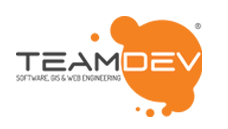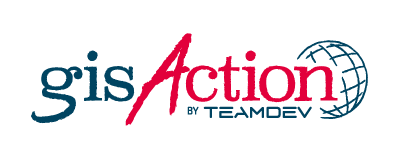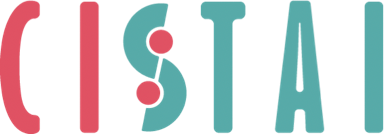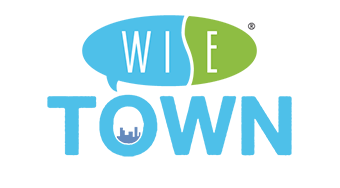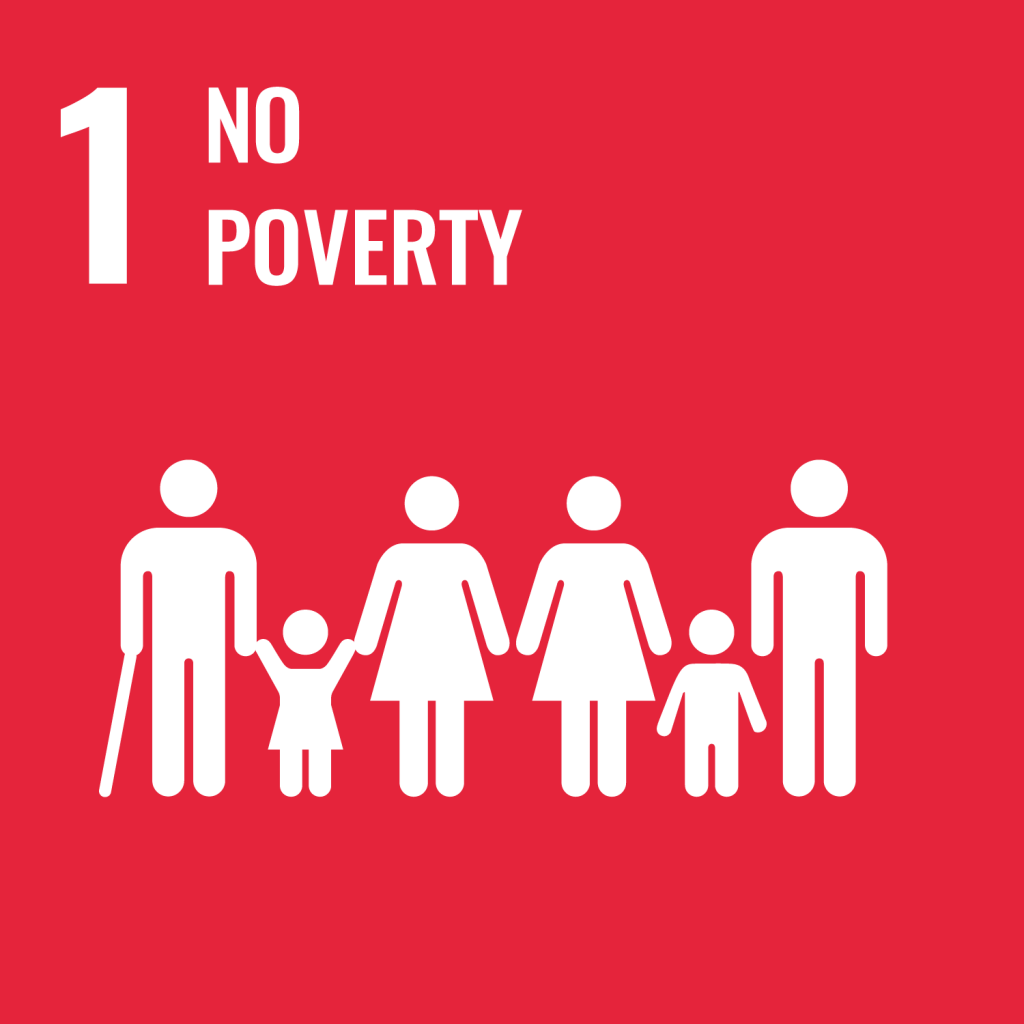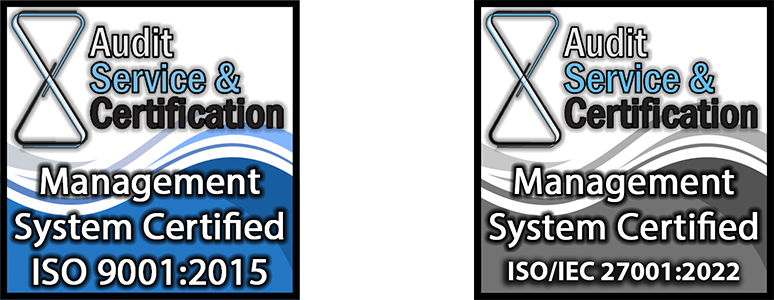Sustainable Development Goals
Through the 17 Sustainable Development Goals (SDGs) and 169 sub-goals endorsed with the 2030 Agenda in September 2015, the governments of the 193 ONU member states commit themselves to achieving sustainable development that is mindful of climate change and human needs, and helps to build peaceful societies in which there is neither poverty nor inequality. The SDGs follow on from the Millennium Development Goals (MDGs) also drawn up by the United Nations in 2000.
TeamDev & SDGs
It is necessary that the commitment to the realisation of the Sustainable Development Goals involves all sectors of society and starts from the bottom, which is why TeamDev is active both internally through the continuous awareness of its working community, and externally by selling a product oriented to an efficient, modern and widespread development. TeamDev contributes to the realisation of a digital transformation that starts from man and the network and arrives at sustainability, in its multiple dimensions, i.e. economic, environmental, social, cultural and institutional.
The TeamDev brands – through their daily work and in their respective fields – represent the means by which the corporate ecosystem affirms its professed vision of economic sustainability:

The digitisation and automation offered by TeamDev to its customers is aimed at enhancing human capabilities through improved working conditions and employee well-being. This is achieved through the facilitation of day-to-day operations and long-term strategic planning, which, transferred across several organisational levels, facilitates the integration of principles of reciprocity and fraternity, to overcome the supremacy of profit and mere instrumental exchange in economic and financial activity;
Ci. Sta. I. is a TeamDev project that wishes to spread the principles of civil economy by making them a verb of its work in the Umbrian territory. The project was created with the aim of stimulating in the local economy an entrepreneurial model that places man and relations at the centre of intra- and extra-corporate dynamics, with the intention of creating a value network and spreading good practices.
Through WiseTown and the collaboration with local administrators, public and private entities, third sector actors and researchers, the problems and needs of the territory and the people who occupy it are confronted in order to improve local services and the quality of life of citizens. WiseTown works for an urban and smart city revolution, epicentre of the UN strategy and hub for the realisation of most of the SDGs;
TeamDev, through its gisAction brand, created the ‘SDG Mapping’ initiative to support the SDGs campaign, a collection of 17 interactive maps designed as a useful tool for spreading awareness about the Sustainable Development Goals proposed by the 2030 Agenda. The maps are based on key indicators, target by target, using authoritative data from the Open SDG Data Hub portal published by the United Nations Statistics Division (UNSD).
In addition, ‘SDGame’ was constructed, a game that takes its cue from the United Nations Regional Information Centre (UNRIC) initiative and aims to foster understanding of the SDGs and raise awareness of sustainable development issues among adults and children. At the same time, the SDGame is intended to highlight the important contribution of geographical tools in the realisation of the Sustainable Development Goals.
TeamDev in support of the Sustainable Development Goals
TeamDev, through its work, contributes concretely to the realisation of the following SDGs:
Case studies in line with the reference objective:
The new Agenda for Sustainable Development sets the goal of eradicating extreme poverty by 2030. Again, Goal 1 focuses on a comprehensive approach to poverty in its broadest sense, and at the same time on individual national poverty situations. It also provides for measures to strengthen resilience to livelihood and social security.
Goal 1: End poverty in all its forms worldwide
The gisAction and WiseTown brands offer tools for mapping local needs, which are essential for building appropriate social protection systems and measures, where collaboration with relevant actors in local and national governments is vital. Thanks to advanced technologies, it is possible, on the one hand, to reach even the most vulnerable individuals in society, to provide them with access to natural resources, basic services and economic and employment opportunities; on the other hand, through monitoring and geo-referencing technologies, it is possible to reduce their exposure to economic, social and environmental shocks. Finally, with the Ci. Sta. I. project, a Microcredit window for the Civil Economy and MECC was opened in March 2021, in order to offer concrete support to those who would not have access to the traditional financial system.
Sub-targets to which we contribute:
- 2: By 2030, reduce by at least half the proportion of men, women and children of all ages living in poverty in all its dimensions according to national definitions
- 3: Implement nationally adequate social protection systems and measures for all and by 2030 to achieve substantial coverage of the number of poor and vulnerable people
- 4: By 2030, ensure that all men and women, particularly the poor and vulnerable, have equal rights to economic resources, as well as access to basic services, ownership and control over land and other forms of property, inheritance, natural resources, appropriate technologies and new financial services, including microfinance
- 5: By 2030, strengthen the resilience of the poor and those living in vulnerable situations and reduce their exposure and vulnerability to climate-related extreme events and other economic, social and environmental shocks and disasters
- A: Ensure significant mobilisation of resources from a variety of sources, including through enhanced development cooperation, to provide adequate and predictable means for developing countries, particularly LDCs, to implement programmes and policies to end poverty in all its dimensions.
- B: Create pro-poor and gender-sensitive policy frameworks at national, regional and international levels, development strategies, to support investment in anti-poverty actions.

In view of the rapidly growing global demand for food, it is estimated that world food production will have to be doubled by 2050. Beyond the commitment to eradicate hunger, Goal 2 aims to end all forms of malnutrition, with the understanding that food quality is as important as quantity. Goal 2 also calls for action in economic aspects, such as doubling agricultural productivity and smallholder farmers’ incomes by 2030.
Goal 2: End hunger, achieve food security and better nutrition, and promote sustainable agriculture
gisAction implements geographic information systems for agronomic monitoring for NGOs in different parts of the world, which are useful for estimating crop yields, raising sustainability awareness and consequently reducing food insecurity. In addition, thanks to numerous collaborations, it contributes to building a local and global network that is attentive to cooperation and focused on increasing the exchange of sustainable and labour-friendly agricultural products.
Some of the activities and results that can be achieved by adopting the technologies of TeamDev brands are: mapping the areas most affected by malnutrition; monitoring the trade flows of agricultural products; helping the agricultural sector to realise higher profits; supporting the work of small and medium-sized producers with smart technologies to increase their productivity and maintain a high level of environmental sustainability; reducing the use of highly polluting materials; increasing parsimony in the use of precious natural resources; controlling the vulnerability of the earth to climatic and environmental shocks and much more.
Sub-goals to which we contribute:
- 1: By 2030, end hunger and ensure access for all people, particularly the poor and those in vulnerable situations, including children, to safe, nutritious and sufficient food throughout the year.
- 3: By 2030, double the agricultural productivity and incomes of small-scale food producers, particularly women, indigenous peoples, farming families, pastoralists and fishers, including through secure and equal access to land and other productive resources, knowledge, financial services, markets and opportunities for value addition and non-farm employment.
- 4: By 2030, ensure sustainable food production systems and implement agricultural practices that increase productivity and production, help maintain ecosystems, strengthen resilience to climate change, extreme weather, drought, floods and other disasters, and progressively improve land and soil quality.
- 5: By 2020, maintain the genetic diversity of seeds, cultivated and domesticated plants and animals and their related wild species, including through seed and plant banks through sound management at national, regional and international levels, and promote equitable access to and sharing of the benefits arising from the use of genetic resources and shared knowledge, as agreed internationally.
- a: increase investment, including through enhanced international cooperation, in rural infrastructure, agricultural research and extension services, technology development and plant and animal gene banks, with a view to improving agricultural production capacity in developing countries, particularly LDCs.
- c: Take measures to ensure the proper functioning of markets for food commodities and their derivatives and facilitate timely access to market information, including on food stocks, in order to help limit the ‘extreme volatility of food prices.
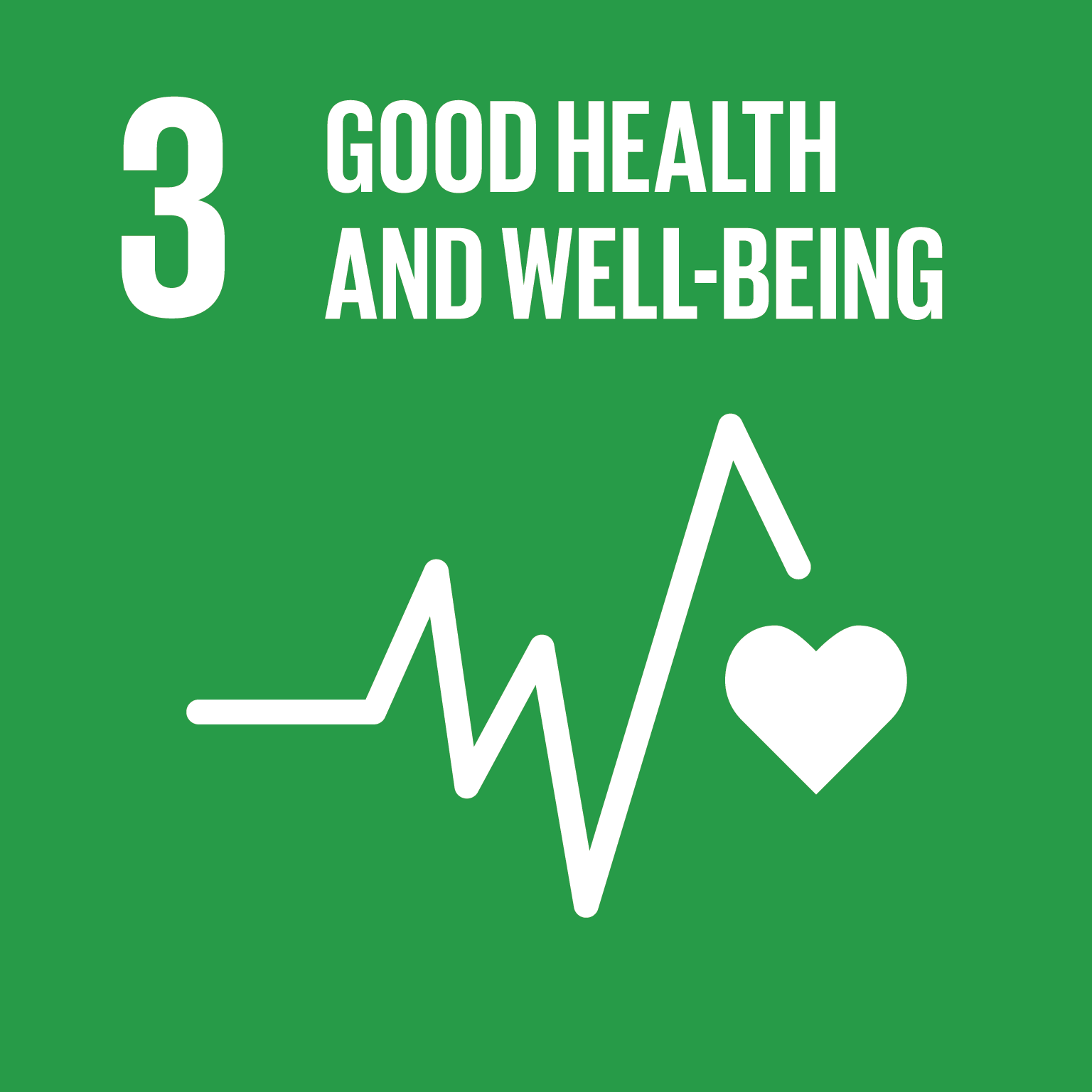
The experience of the MDGs has shown that it is useful to analyse health problems within a context, not in isolation. Education and food security, for example, influence the effectiveness of health care programmes.
All people should have access to good quality health services and medicines. Goal 3 continues along the same lines as the MDGs with regard to child and maternal mortality, as well as communicable diseases, such as AIDS, malaria and tuberculosis, while also including provisions on combating non-communicable diseases, such as diabetes, and the prevention of road accidents and drug abuse.
Objective 3: Ensure healthy living and promote well-being for all at all ages
By facilitating workflows, monitoring the most vulnerable areas in terms of the spread of communicable and non-communicable diseases, facilitating rapid communication and developing citizen services, an immediate and reasoned response to the health needs of the population is ensured. The data work that TeamDev carries out in collaboration with hospitals, public administrations and NGOs strongly contributes to the efficient planning of health services that promote the wellbeing of all and eradicate mortality, through the implementation of targeted activities, such as: road monitoring to reduce road accidents; quick and easy access to citizen services for a prompt response; mapping the areas most at risk of communicable diseases such as AIDS for the implementation of information and support works for the mental and physical wellbeing of the sick.
Sub-goals to which we contribute:
- 1: By 2030, reduce the global maternal mortality rate.
- 3: By 2030, end the epidemics of AIDS, tuberculosis, malaria and neglected tropical diseases and combat hepatitis, waterborne and other communicable diseases
- 4: By 2030, reduce premature mortality from non-communicable diseases by one third through prevention and treatment and promote mental health and well-being
- 5: Strengthen prevention and treatment of substance abuse, including drug abuse and harmful use of alcohol
- 6: By 2020, halve the number of global deaths and injuries from road traffic accidents
- 7: By 2030, ensure universal access to sexual and reproductive health care services, including for family planning, information and education, and the integration of reproductive health into national strategies and programmes
- 9: By 2030, substantially reduce the number of deaths and illnesses from hazardous chemicals and air, water and soil pollution and contamination
- d: Strengthen the capacity of all countries, particularly developing countries, for early warning, risk reduction and management of national and global health risks.
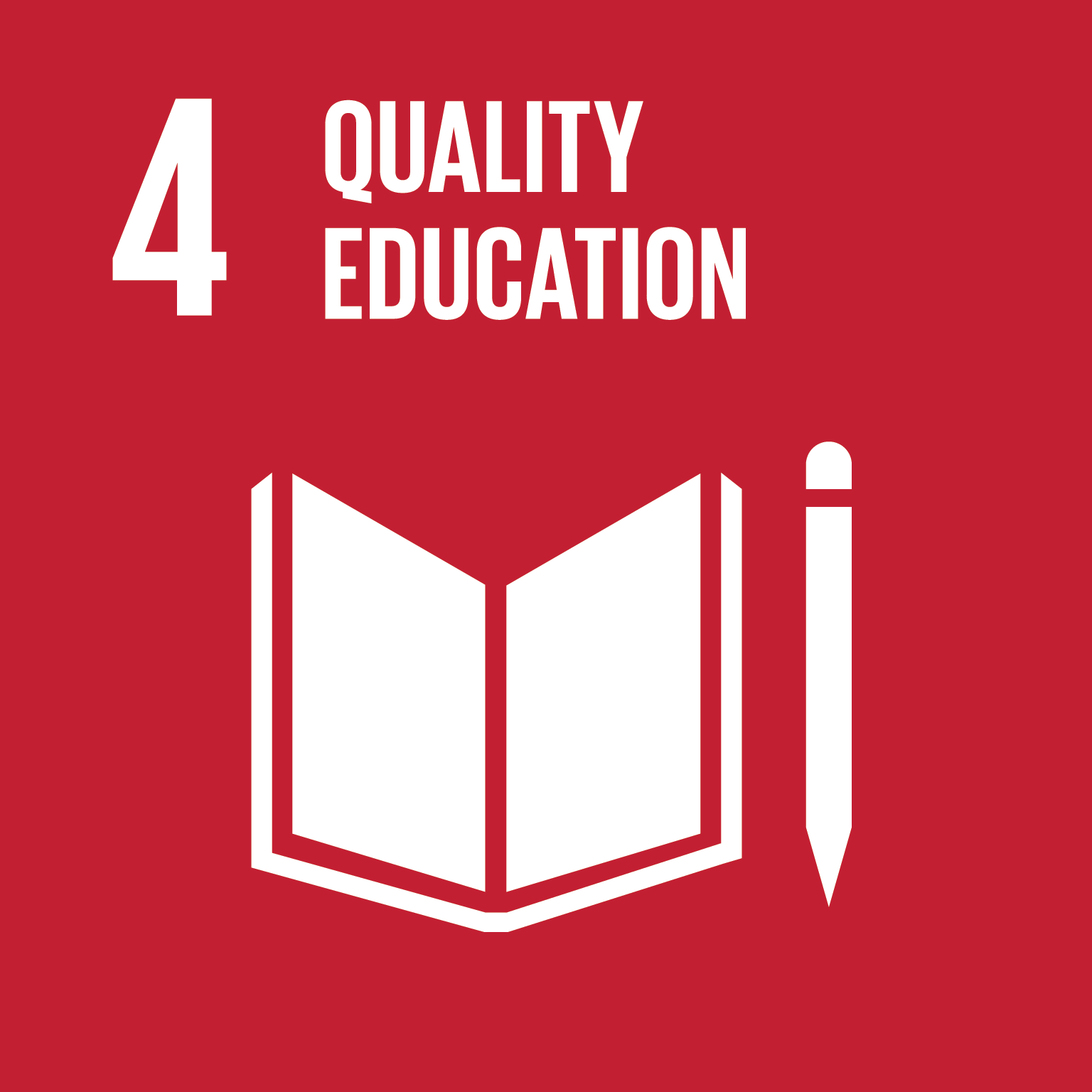
The international community has reaffirmed the importance of good quality education and training for improving the living conditions of individuals, communities and societies as a whole. Building on the many useful lessons of the Millennium Development Goals (MDGs), the new Sustainable Development Goal 4 goes beyond children’s primary education, highlighting in particular the link between basic education and vocational training.
Goal 4: Ensure inclusive and equal quality education and promote lifelong learning opportunities for all
Spreading knowledge and informing about the importance of technological transformation as a driver of sustainability and economic development that is attentive to people and the ecosystem in which they live, is a cornerstone of TeamDev’s work. The company’s vocation, since its inception, has been to build training and information events, webinars, workshops, online support designed to meet customers’ needs, specific training for the use of digital tools in international cooperation, and professionalising training courses aimed at enhancing both the soft and technical skills of the company’s employees, while also offering the possibility of internships, school-to-work alternation, or obtaining industrial doctorates or research scholarships.
In this way, the aim is to promote an education that enables the development of professional and technical skills, which are increasingly in demand today, promoting quality education useful for the construction of a decent job that favours equal opportunities and reduces inequalities. Education activities are always attentive to the promotion of sustainable development, highlighting the importance of education to build a world in which lifestyles are sustainable, attentive to the rights of all and respectful of cultural diversity.
Sotto-obiettivi ai quali si contribuisce:
- 4 Entro il 2030, aumentare sostanzialmente il numero di giovani e adulti che abbiano le competenze necessarie, incluse le competenze tecniche e professionali, per l’occupazione, per lavori dignitosi e per la capacità imprenditoriale
- 5: Entro il 2030, eliminare le disparità di genere nell’istruzione e garantire la parità di accesso a tutti i livelli di istruzione e formazione professionale per i più vulnerabili, comprese le persone con disabilità, le popolazioni indigene ei bambini in situazioni vulnerabili
- 6: Entro il 2030 garantire per tutti i giovani e una parte sostanziale di adulti, uomini e donne, in raggiungimento di un’alfabetizzazione
- 7: Entro il 2030, assicurarsi che tutti gli studenti acquisiscano le conoscenze e le competenze necessarie per promuovere lo sviluppo sostenibile, attraverso l’educazione per lo sviluppo sostenibile e stili di vita sostenibili, i diritti umani, l’uguaglianza di genere, la promozione di una cultura di pace e non-violenza , cittadinanza globale e l’apprezzamento della diversità culturale e del contributo della cultura allo sviluppo sostenibile
- b: Entro il 2020, sostanzialmente espander a livello globale il numero di borse di studio a disposizione dei paesi in via di sviluppo, in particolare i paesi meno sviluppati, piccole isole in via di sviluppo membri e dei paesi africani, per l’iscrizione nel settore dell’istruzione superiore, compresa la formazione professionale e dell’informazione e della tecnologia delle comunicazioni, tecnica, di programmi di ingegneria e scientifici, nei paesi sviluppati e in altri paesi in via di sviluppo
- Save the Children Italy – Storymap: Outcasts on the Move
The impact of the Coronavirus on educational poverty
The use of storymaps in journalism | training course
Summer School ‘Preventive archaeology and remote sensing
Flytech project: a professional qualification course
Civic Tech Academy – WiseTown
Webinar cycle of Ci. Sta. I. webinar series ‘The civic dimensions of the economy: words, ideas and actions’.
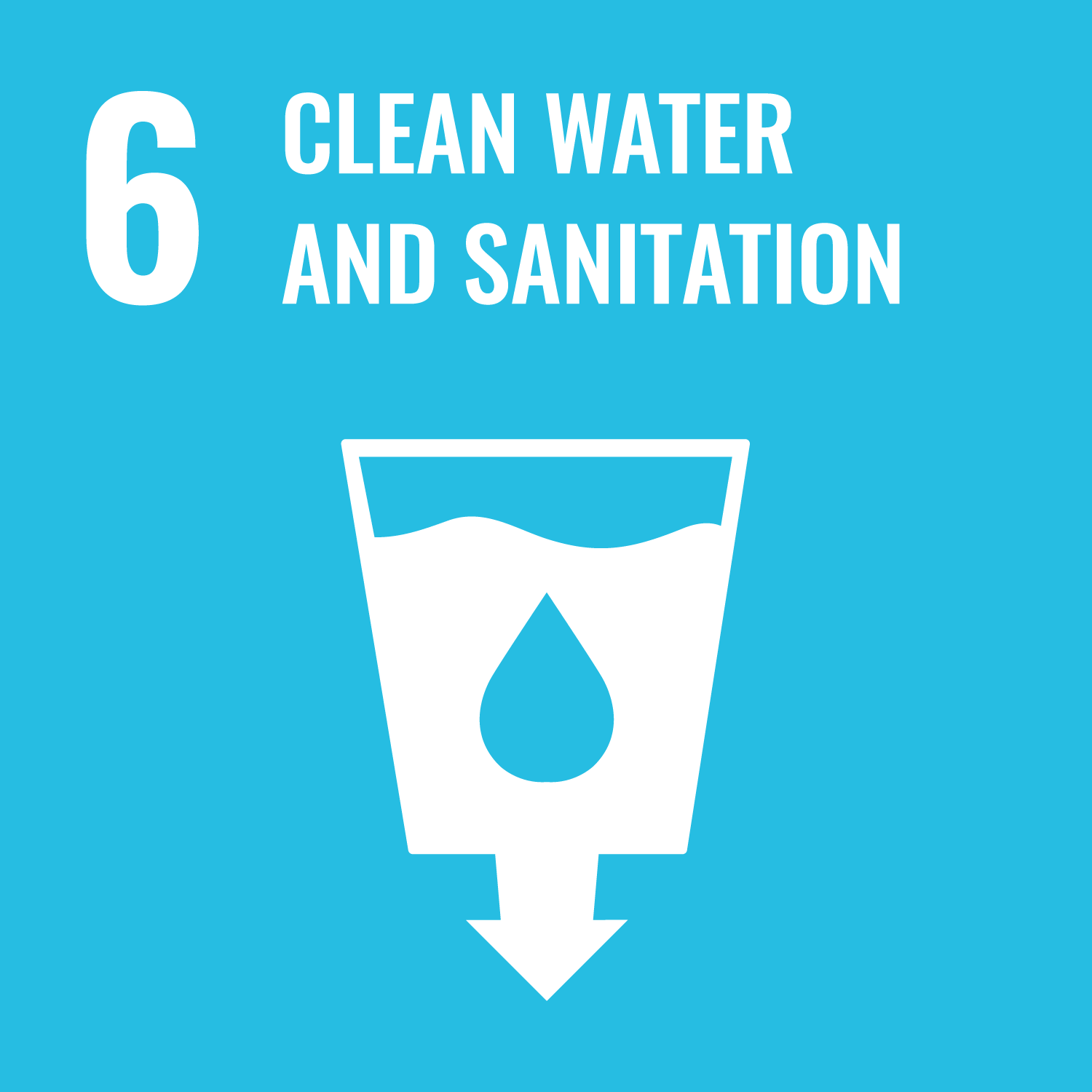
Access to clean water and sanitation is a human right and, together with water resources, a determining factor in all aspects of social, economic and environmental development. In addition to access to clean water and sanitation, Goal 6 includes further objectives such as the protection and restoration of water-related ecosystems, including mountains, forests, wetlands, rivers and lakes. Through this goal, efforts are made to improve water quality and reduce water pollution, particularly from hazardous chemicals.
Goal 6: Ensure the availability and sustainable management of water resources and sanitation for all
Developing smart and integrated water resource management through technologies deployed by WiseTown enables universal and equitable access to drinking water, making it available and affordable to all, and ensures monitoring of its chemical characteristics, helping to improve water quality and reduce pollution. In addition, a digitization of sanitation, provision of information on pollution status, and monitoring and analysis of environmental pressures related to urban or rural wastewater discharges make it possible to keep water availability under control, increase the efficiency of services, restore water-related ecosystems, and distribute water equitably even in those areas suffering from scarcity of the resource.
Sub-goals to which you contribute:
- 1: By 2030, ensure universal and equitable access to safe and affordable water for all
- 3: By 2030, improve water quality to reduce pollution by minimizing the release of chemicals and hazardous materials, halve the percentage of untreated wastewater, and substantially increase recycling and safe reuse globally
- 4: By 2030, to substantially increase water efficiency for use in all sectors and ensure freshwater withdrawals and supply to address water scarcity and substantially reduce the number of people suffering from water scarcity
- 5: By 2030, implement integrated water resources management at all levels, including through transboundary cooperation as appropriate.
- 6: By 2020, protect and restore water-related ecosystems, including mountains, forests, wetlands, rivers, aquifers, and lakes
- a: By 2030, strengthen cooperation for international capacity building of developing countries in related activities and programs-water and sanitation, including water harvesting, desalination, water efficiency, wastewater treatment, recycling and reuse technologies
- b: Support and strengthen the participation of local communities in improving water and sewerage management.

Goal 8 brings together commitments for sustained economic growth, economic productivity and decent job creation. In addition, a call is made to work toward combating forced labor and ending modern slavery and human trafficking by 2030. Sustainable economic growth must not come at the expense of the environment, which is why Goal 8 also aims for better efficiency in global resource consumption and production by preventing environmental degradation related to economic growth.
Goal 8: Promote sustained, inclusive and sustainable economic growth, full and productive employment and decent work for all
TeamDev, through the deployment of digital tools, works for a digital transformation of its clients’ activities, to increase their economic productivity and allow a consequential diversification of products and services, thanks to the increase of value in different sectors. Collaborating with both the public and private sectors enables the development of an ecosystem capable of sustaining human and cultural heritage, where responding to the needs of the territory means facilitating employment, always with a view to gender equality and the cancellation of inequalities. In addition, both internally and externally, through ad hoc courses and awareness-raising activities aimed at promoting innovation and the dissemination of an agile and flexible methodology for employees, it assumes a fundamental role in the economic development of businesses and people. Finally, training, technical and moral support wish to promote a civilized and sustainable economy in which entrepreneurship is an engine of local development, which then relates to the global world.
Sub-goals to which you contribute:
- 2: raggiungere livelli più elevati di produttività economica attraverso la diversificazione, l’aggiornamento tecnologico e l’innovazione, anche mirando ad un alto valore aggiunto nei settori ad alta intensità di manodopera
- 3: Promuovere politiche orientate allo sviluppo che supportano le attività produttive, la creazione di lavoro dignitoso, l’imprenditorialità, la creatività e l’innovazione e incoraggiare la formazione e la crescita delle micro, piccole e medie imprese, anche attraverso l’accesso ai servizi finanziari
- 4: migliorare progressivamente, entro il 2030, l’efficienza globale delle risorse, dei consumi e della produzione e slegando la crescita economica dal degrado ambientale
- 5: Entro il 2030, raggiungere la piena e produttiva occupazione e un lavoro dignitoso per tutte le donne e gli uomini, anche per i giovani e le persone con disabilità, e la parità di retribuzione per lavori di pari valore
- 6: entro il 2020, ridurre sostanzialmente la percentuale di giovani disoccupati, anche attraverso istruzione o formazione
- 8: proteggere i diritti del lavoro e promuovere un ambiente sicuro e protetto di lavoro per tutti i lavoratori, compresi i lavoratori migranti, in particolare donne migranti, e quelli in lavoro precario
- 9: Entro il 2030, elaborare e attuare politiche volte a promuovere il turismo sostenibile, che crea posti di lavoro e promuove la cultura e prodotti locali

Investments in sustainable infrastructure and scientific and technological research increase economic growth, create jobs and promote prosperity. Goal 9, therefore, aims to build resilient infrastructure, promote industrialization and foster innovation. Greater efficiency of resources to be used and a step change on the adoption of clean and environmentally friendly technologies to make infrastructure and industries sustainable by 2030.
Goal 9: Build resilient infrastructure, promote inclusive and sustainable industrialization, and foster innovation
TeamDev, starting with enhancing the technological capabilities of industry, public administrations and NGOs, facilitates communication between the public and private worlds, fosters inclusion, systematizes workflows, reduces the environmental impact of operations, and monitors the management of activities to ensure greater efficiency of the production system and collaboration of local actors. The use of innovative technologies in cities makes it possible to formulate infrastructural and digital services that detect people’s movements to respond promptly to critical issues and ensure safety, security and efficiency for the population. This facilitates sustainable and safe travel that reduces stress, increases sharing, and enables widespread trust in public services in various areas, ranging from tourism management to transportation and traffic management. Finally, the involvement of residents in the organizational dynamics of cities, or employees in the development of business strategies, allows for all-round social inclusion that makes citizens and employees advocates for their own well-being, stimulating a dynamic and constructive dialogue for development.
Sub-goals to which you contribute:
- 1 Develop quality, reliable, sustainable and resilient infrastructure, including regional and cross-border infrastructure, to support economic development and human well-being, with a focus on equitable access for all
- 2: Promote inclusive and sustainable industrialization and, by 2030, significantly increase the sector’s share of employment and gross domestic product, in line with the national situation, in least developed countries
- 4: By 2030, upgrading infrastructure industries and to make them sustainable, with greater efficiency of resources to be used and greater adoption of clean and environmentally friendly technologies and industrial processes, in accordance with countries’ respective capabilities
- 5 Strengthen scientific research, promote the technological capabilities of industrial sectors in all countries, particularly in developing countries, including by encouraging, by 2030, innovation and substantially increasing the number of research and development workers per million people and public and private spending on research and development
- b: Support domestic technology development, research and innovation in developing countries, including by ensuring a policy environment conducive to, among other things, industrial diversification and adding value to raw materials
- a: Facilitate sustainable infrastructure development in developing countries through increased financial, technological and technical support to African countries, the least developed, landlocked developing countries and small island developing states
- c: Significantly increase access to information and communication technologies and strive to provide universal and low-cost access to the Internet in LDCs by 2020

Inequalities limit opportunities for participation in social, cultural, political and economic life. Goal 10 focuses on reducing inequality within and between countries; concretely, it aims to raise the incomes of the poorest classes to facilitate the achievement of a good degree of social, economic and political inclusion for all by 2030. Beyond that, Goal 10 aims to ensure equality of opportunity through the elimination of discriminatory laws, policies and practices, facilitating more regularized and safe human migration through the implementation of appropriate migration policies.
Goal 10: Reduce inequalities within and between countries.
The work that gisAction has been doing for years alongside NGOs and the Third Sector is in support of a model that aims at the constant inclusion of the most vulnerable people as an essential principle to influence in the reduction of inequalities and allow a real understanding of the cultural and personal identities of the place in which one acts. It is intended, thus, to raise awareness of greater representativeness in the process of building territorial social dynamics in order to listen to the needs of all subjects, without excluding anyone: children, women, migrants, the marginalized.
Over time, projects to monitor the flow of migrants have been initiated in order to raise awareness of the migration phenomenon and stimulate public debate to reasoning useful to the inclusion and security of the allocation in the territory, also with a view to reducing the costs of migration.
On the other hand, the support that institutions can obtain from the technological tools of WiseTown useful for monitoring, information and management of the flows of people, allow them to build ad hoc projects for the safety of all and develop social protection policies, which ensure greater equality in the use of public services and in everyday life, reducing, also, attitudes of discrimination and social marginalization.
Subgoals to which you contribute:
- 2: By 2030, enhance and promote the social, economic, and political inclusion of all, regardless of age, gender, disability, race, ethnicity, origin, religion, or economic or other status
- 4: Adopt policies, particularly tax, wage, and social protection policies, to progressively achieve greater equality
- 6: Ensure greater representation and voice for developing countries within the decision-making process in international economic and financial institutions globally in order to provide the most effective, credible, accountable and legitimate institutions
- 7: Facilitate orderly, safe, regular and responsible migration and mobility of people, including through the implementation of planned and well-managed migration policies
- c: By 2030, to reduce migration costs to less than 3 percent.
- Atlas of Childhood at Risk – Save the Children
- Map of filmography on immigration in Italy for Migrant Memories Archive
- “Return to Lampedusa” – the story of Mahamed Aman
- 30 years in Asia: StoryMap for NGO ASIA
- Atlas of Unaccompanied Foreign Minors in Italy – Save the Children
- The Migrant Health Courier

Goal 11 aims to reduce the negative effects of cities’ environmental impacts in terms of air quality and waste management. It calls for working toward more inclusive and sustainable forms of urbanization, based on a participatory, integrated and sustainable approach to urban planning. It also aims to make green and public spaces safe and inclusive, especially for women, children, the elderly and people with disabilities, and to ensure access to safe and affordable transportation.
Goal 11: Make cities and human settlements inclusive, safe, flexible and sustainable
The work that TeamDev-through its WiseTown brand-carries out alongside public administrations and institutions to build smart cities and ecosystems contributes to the achievement of Goal 11. Indeed, the continuous monitoring of human and natural resources in the territory strengthens the protection and safety of citizens, safeguarding cultural and natural heritage and consolidating cohesive and supportive networks. City data management is a tool to support decision-making that ensures universal access to safe public spaces, particularly for women and children, the elderly, and people with disabilities, and builds a network of resilient infrastructure services, resulting in inclusive and sustainable urbanization, characterized by participatory planning and management of human settlement, locally, nationally, and internationally.
Building a mobility and people flow monitoring network to ensure safe and integrated coordination of cities, especially during events, festivals, and parades, helps to provide safe access to transportation systems, realizing an integrated and less polluting urbanization, which positively affects the economic apparatus of the territory.
Sub-goals to which you contribute:
- 1 By 2030, provide access to adequate, safe, and affordable basic housing and services for all and the elimination of slums
- 2 By 2030, provide access to safe, sustainable, and affordable transportation systems for all, improve road safety, particularly by expanding public transportation, with special attention to the needs of those in vulnerable situations, women, children, people with disabilities, and the elderly
- 3 By 2030, increase inclusive and sustainable urbanization and capacity for participatory and integrated human settlement planning and management in all countries
- 4: Strengthen efforts to protect and preserve the world’s cultural and natural heritage
- 5: By 2030, to significantly reduce the number of deaths and the number of people affected, and substantially reduce economic losses relative to global gross domestic product, caused by disasters, including water-related disasters, with a focus on the poor and people in vulnerable situations
- 6: Entro il 2030, ridurre il negativo impatto ambientale pro capite nelle città, con particolare attenzione alla qualità dell’aria e gestione dei rifiuti urbani e di altro tipo
- 7: Entro il 2030, fornire l’accesso universale a spazi sicuri, inclusivi e accessibili, verdi e pubblici, in particolare per le donne ei bambini, anziani e persone con disabilità
- a: Supporto ai legami economici, sociali e ambientali tra le zone urbane, periurbane e rurali rafforzando la pianificazione dello sviluppo nazionale e regionale
- b: Entro il 2020, aumentare notevolmente il numero di città e insediamenti umani con l’adozione e attuazione di politiche e programmi volti all’inclusione, all’efficienza delle risorse, alla mitigazione e all’adattamento ai cambiamenti climatici, alla resilienza ai disastri integrati, e volti a sviluppare e attuare, la gestione del rischio di catastrofi a tutti i livelli
- – 6: By 2030, reduce the negative per capita environmental impact in cities, with a focus on urban and other air quality and waste management
- – 7: By 2030, provide universal access to safe, inclusive, and accessible green and public spaces, particularly for women and children, the elderly, and people with disabilities
- – a: Support economic, social and environmental linkages between urban, peri-urban and rural areas by strengthening national and regional development planning
- – b: By 2020, significantly increase the number of cities and human settlements with the adoption and implementation of policies and programs aimed at inclusion, resource efficiency, climate change mitigation and adaptation, integrated disaster resilience, and aimed at developing and implementing, disaster risk management at all levels
- WiseTown® Situation Room | Eurochocolate festival flow monitoring
- Real-time security monitoring during the Independence Day celebration (USA)
- SOdA – Crowdsourcing application for populating a collaborative map
- Platform for data sharing, visualization and collaboration built for the Province of Perugia
- A Storymap for the “Grande Raccordo Anulare delle Bici” – GRAB

Goal12-implementing the 10-year framework of programs on sustainable consumption and production patterns-aims for the environmentally sound management of chemicals and all waste, as well as a substantial reduction in waste generation through measures such as recycling. It also aims to halve food waste, encourage businesses to adopt sustainable practices, and promote sustainable public procurement policies.
Goal 12: Ensure sustainable consumption and production patterns.
In planning and contracting, TeamDev aims to make arrangements and solicit contracts that are oriented as much as possible sustainability and transparency. Through corporate communication on social media, publications and articles, it attempts to raise awareness among its users its network, as well as its competitors and other stakeholders, public and private, of the sustainable development that in cities or rural areas enables resilient attitudes in harmony with nature.
Among the work that gisAction has been doing for many years in collaboration with numerous NGOs are monitoring and impact assessment activities that, especially in developing countries, aim at the advancement of agricultural production techniques towards more circular forms, which reduce the use of natural resources, waste and costs as much as possible, resulting in greater production and consequent greater profit. This promotes technological tools that not only help the construction of new models, but also insert, in the modus operandi of populations, skills and capacities, which press for sustainability throughout the supply chain.
Sub-goals to which you contribute:
- 1 By 2030, provide access to adequate, safe, and affordable basic housing and services for all and the elimination of slums
- 2 By 2030, provide access to safe, sustainable, and affordable transportation systems for all, improve road safety, particularly by expanding public transportation, with special attention to the needs of those in vulnerable situations, women, children, people with disabilities, and the elderly
- 3 By 2030, increase inclusive and sustainable urbanization and capacity for participatory and integrated human settlement planning and management in all countries
- 4: Strengthen efforts to protect and safeguard the world’s cultural and natural heritage
- 5: By 2030, to significantly reduce the number of deaths and the number of people affected, and substantially reduce economic losses relative to global gross domestic product, caused by disasters, including water-related disasters, with a focus on the poor and people in vulnerable situations
- 6: By 2030, reduce the negative per capita environmental impact in cities, with a focus on urban and other air quality and waste management
- 7: By 2030, provide universal access to safe, inclusive, and accessible green and public spaces, particularly for women and children, the elderly, and people with disabilities
- a: Support economic, social and environmental linkages between urban, peri-urban and rural areas by strengthening national and regional development planning
11.b: By 2020, significantly increase the number of cities and human settlements with the adoption and implementation of policies and programs aimed at inclusion, resource efficiency, climate change mitigation and adaptation, integrated disaster resilience, and aimed at developing and implementing, disaster risk management at all levels

Climate change is a key challenge in sustainable development. The warming of the earth’s climate is causing changes in the global climate system that threaten the livelihoods of large segments of the population in less developed countries, while infrastructure and some economic sectors are vulnerable to the risks of climate change, particularly in developed regions. Goal 13 represents a commitment to strengthening resilience to climate-related natural disasters and reaffirms the commitment made by developed countries to mobilize $100 billion jointly each year from all sources by 2020 to help developing countries adapt to climate change.
Goal 13: Take urgent action to combat climate change and its consequences.
Infrastructure monitoring ensures the proper, informed and accessible use of natural resources, contributing to strengthening resilience and adaptive capacity to climate-related hazards. Smart and coordinated city management, formulated by WiseTown, enables the public sector to foster widespread awareness of environmental education, building institutional capacity over time to target sustainable climate change mitigation, impact reduction, early warning and efficient response strategies and planning.
TeamDev through training and organizing webinars, aims to disseminate these issues among stakeholders, stimulating collaboration in reducing the environmental impacts of everyday activities. Contracts, as well as customer and government relations, aim to discuss the importance of eco-friendly attitudes and tools that enable real monitoring of today’s situation, which are essential for planning and managing climate change mitigation.
Sub-goals to which they contribute:
- 1: Strengthen resilience and adaptive capacity to climate-related hazards and natural disasters in all countries
- 2: integrate climate change measures into national policies, strategies, and planning
- 3: Improve education, awareness and institutional capacity on climate change mitigation, adaptation, impact reduction and early warning
- b Promote mechanisms to increase capacity for effective climate change-related planning and management in LDCs and small island developing states focusing on, among others, women, youth, and local and marginalized communities

Biodiversity and forest health contribute to poverty reduction and underpin food security and human health, as they provide clean air and water and absorb CO2 emissions. Goal 15 is aimed at the conservation, restoration and sustainable use of ecosystems, with the goal of halting deforestation, ensuring the restoration of degraded forests and significantly increasing reforestation by 2020.
Goal 15: Protect, restore and promote the sustainable use of terrestrial ecosystems, sustainably manage forests, combat desertification, and halt and reverse land degradation and halt biodiversity loss
Protecting biodiversity is a commitment that must be made by everyone, because it is on the earth ecosystem that we depend, and problems related to desertification and deforestation lead to drought issues and consequent environmental disasters. That is why monitoring the places that are most at risk, making plans to safeguard resources and damaged areas, and enhancing forest and wildlife resources are tools that can help safeguard the health of our planet.
Over the years, gisAction’s work, such as the mapping of forest areas and ancient plants, has facilitated the conservation, restoration, and sustainable use of these unique resources, which are essential for the production of clean air and the absorption of CO2 emissions. These actions enable the conservation and reconstruction of mountain or freshwater ecosystems, protecting all the flora and fauna that inhabit them, and thus helping to halt the loss of biodiversity.
Work in developing countries, in collaboration with public agencies and private organizations, has enabled the mapping of drought-prone and degraded areas, providing an essential background for planning activities, not just restoration and rehabilitation, but for building infrastructure projects and rapid response interventions to environmental needs. Projects of this kind, when disseminated to a broad population, allow for civil society awareness and the consequent introduction of more restrictive laws and strategies.
Sub-goals to which contributions are made:
- 1: By 2020, ensure the conservation, restoration and sustainable use of inland freshwater and terrestrial ecosystems and their services, particularly forests, wetlands, mountains and drylands, in line with obligations under international agreements
- 2: By 2020, promote the implementation of sustainable management of all types of forests, halt deforestation, restore degraded forests, and significantly increase reforestation globally
- 3: By 2030, ensure combating desertification, restoration of degraded lands and soils, including lands affected by desertification, droughts and floods
- 4: By 2030, ensure the conservation of upland ecosystems, including their biodiversity, in order to enhance their capacity to provide benefits that are essential for sustainable development
- 5: Take urgent and significant action to reduce the degradation of natural habitats, halt biodiversity loss, and, by 2020, protect and prevent the extinction of threatened species
- 9: By 2020, integrate ecosystem and biodiversity values into national and local planning, development processes, and poverty reduction strategies and directions
- a: mobilize and significantly increase financial resources from all sources in order to conserve and sustainably use biodiversity and ecosystems

Without a peaceful and inclusive community and effective governance, development cannot be sustainable. Goal 16 therefore aims to promote peaceful and inclusive societies by reducing all forms of violence, including torture and combating all forms of organized crime, corruption and bribery, as well as illicit financial and arms flows. To ensure that societies are peaceful and inclusive, the international community calls for building inclusive institutions, strengthening the rule of law, and ensuring equal access to justice.
Goal 16: Promote peaceful and inclusive societies for sustainable development, provide access to justice for all, and build effective, accountable and inclusive institutions at all levels
Innovative technologies help institutions support citizens in multiple moments of their lives, whether work or convivial, making public actions transparent and thus ensuring a just and inclusive social life for its citizens. Horizontally involving a city’s residents in public decisions, as called for in many of TeamDev’s projects, reduces distortions in information, strengthens participation, increases knowledge, and protects the freedoms of all.
Facilitating horizontal governance at the local, national and international levels promotes efficient population management, enabling increased safety and security, resulting in a reduction in unrest, violence and crime.
Moreover, through the activation of collaborations that aim to build trusting and peaceful relationships, increasingly accountable, transparent and just societies are built, where the victory of one is also the victory of the other.
Thanks to technologies today, this is possible, and each of us can obtain a legal identity, assert our rights, and collaborate for fair and transparent justice.
Sub-goals to which you contribute:
- 1: significantly reduce all forms of violence and mortality rates
- 3: Promote the rule of law nationally and internationally and to ensure equal access to justice for all
- 5: Substantially reduce corruption and bribery in all their forms
- 6: Develop effective, accountable and transparent institutions at all levels
- 7: Ensure responsive, inclusive, participatory and representative decision-making at all levels
- 8: Expand and strengthen the participation of developing countries in global governance institutions
- 9: By 2030, ensure legal identity and birth registration for all
- 10: Ensure public access to information and protect fundamental freedoms, in accordance with national legislation and international agreements
- a: Strengthen the capacity of national institutions, including through international cooperation, particularly in developing countries, to prevent violence and combat terrorism and crime
- b: Promote and enforce non-discriminatory laws and policies for sustainable development.
